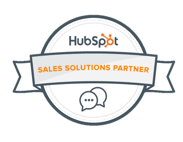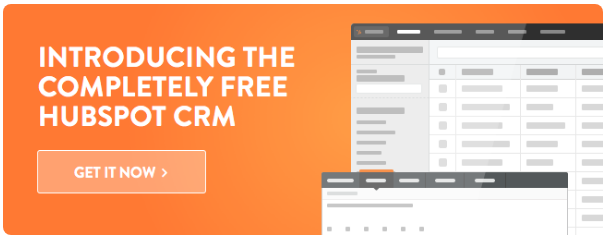 If you're reading this post, then you might feel a little like the kid with his hand caught in the cookie jar. You've done your homework, you know that you aren't supposed to have dessert before dinner, and yet you can't help yourself ... you reached for the cookie, without realizing that if you had just done a little bit of research you could have had a cookie on top of an ice cream sundae. In other words, perhaps you have a "fake CRM" (the cookie) and have now sheepishly realized that it isn't a "real" CRM. One might say that's the way the cookie crumbles, but all food references aside, you've come to the right place if you want to a) confirm that your CRM isn't cutting it, and b) discover what you should be looking for in your CRM.
If you're reading this post, then you might feel a little like the kid with his hand caught in the cookie jar. You've done your homework, you know that you aren't supposed to have dessert before dinner, and yet you can't help yourself ... you reached for the cookie, without realizing that if you had just done a little bit of research you could have had a cookie on top of an ice cream sundae. In other words, perhaps you have a "fake CRM" (the cookie) and have now sheepishly realized that it isn't a "real" CRM. One might say that's the way the cookie crumbles, but all food references aside, you've come to the right place if you want to a) confirm that your CRM isn't cutting it, and b) discover what you should be looking for in your CRM.
The Woes Of The Cookie Cutter (i.e. Fake) CRM
A real CRM is an invaluable marketing tool. At its core, a CRM refers to the software needed to successfully track your company's interactions with prospects (leads) and customers. As a customer relationship management solution, the software is designed to accurately store contact information, help reps build demographic-rich audience personas, and succinctly create a unified platform that teams can use to effectively transition prospects into customers, while simultaneously maintaining existing client relationships. In short, the importance of a CRM to the growth and success of your company cannot be overstated.
If you don't have a real CRM, then you are probably using a makeshift solution that does a mediocre job of tracking customers and prospects. In fact, as you will come to see later on in this post, your fake cookie-cutter CRM could lack the features that you need to hold your sales team accountable, nurture customer relationships, develop accurate reports, and effectively manage your entire sales team.
Before you say, "but my ERP works just fine," it's important that you realize that Great Plains is a fantastic tool, but it's not a CRM. It might have customer data, but it doesn't have the right data for your sales team. Come to think of it, do you really want your sales team in your ERP and accessing critical financial information? Instead of trying to make do with one system, you should give your sales team the tools that they need to schedule meetings, track activity KPIs, follow-up with leads, and in short do what they do best (close deals and make sales).
Store Data The Right Way With A CRM.
Now that you have acknowledged that an ERP is not the same as a CRM (nor is it a good substitute), it is time to explore the benefits of using the right CRM. A CRM is uniquely designed to expedite the sales process by storing data the right way. It is reliable, it saves time, and most importantly it gives sales associates the accurate information that they need with a simple click of the mouse that takes them to the appropriate customer or prospect profile. Everything that a sales associate needs to build a relationship and make more sales is securely stored and properly organized for accessibility within a CRM.
Simplify The Lives Of Your Entire Team With Improved Communications.
CRMs not only enhance communications with prospects, but they also encourage improved internal messages. For example, a CRM is quick to point out that the new sales rep is on a call with a lead from two years ago who had already started to build a relationship with a different team member. Armed with this knowledge, the rep can best determine if he or his colleague should continue to build the relationship. Streamlined communications and access to accurate customer and lead profiles are the lifeblood of a real CRM.
Another benefit of the CRM is that it makes it astronomically easier for managers to track the activities of their entire sales team. In fact, CRMs are notorious for streamlining reporting capabilities. Without a CRM, managers are forced to track their sales team in cumbersome ways that are prone to human error and false reports. CRMs ensure that data is entered uniformly, easy to combine, and even easier to analyze.
Embrace Scalable Growth.
If you aren't using an ERP as your CRM, then chances are that you might just be using an Excel spreadsheet, which is to say that you haven't even made it to the cookie jar of our opening metaphor. With five or fewer customers, you might be able to manually track each interaction with a simple Excel spreadsheet. However, if you want to grow your business, then the latter methodology isn't scalable. Instead, you need a CRM to ensure that the data is accurately (and in some cases automatically) inputted, so that you can track and analyze the information needed to embrace scalable growth. In short, a CRM will help you to paint an accurate picture each and every time that you reach out to a prospect or existing customer.
Don't Be Fooled, Choose The Right CRM
Ultimately, if you want to grow your business, then you need to choose a real CRM. In today's competitive landscape you can't get away with an "oh we'll make do" mentality. Instead, the right CRM can help you to connect with your potential customers at the right time, on the right platforms, and with the right messages. Two of our favorite CRMs for small to mid-sized businesses are HubSpot and Keap.
 HubSpot CRM is one of the most popular options for companies with 10 – 200 employees. In fact, HubSpot might have "written the book" when it comes to an intuitive CRM that is perfect for small to mid-sized companies by effectively avoiding the complexity of enterprise level CRMs. Document storage, calendar, email marketing, lead scoring, and marketing automation are just a few characteristics of the HubSpot CRM.
HubSpot CRM is one of the most popular options for companies with 10 – 200 employees. In fact, HubSpot might have "written the book" when it comes to an intuitive CRM that is perfect for small to mid-sized companies by effectively avoiding the complexity of enterprise level CRMs. Document storage, calendar, email marketing, lead scoring, and marketing automation are just a few characteristics of the HubSpot CRM.

Another alternative for small businesses is Keap. Keap is a great CRM for small services businesses that need to convert incoming leads into actual paying (and satisfied) customers. A calendar, intuitive quotes and proposals, task and territory management, segmentation, and email marketing are just a few of the features found on the Keap CRM.
For additional insights into choosing the right CRM, and making positive changes that promote business growth, contact a member of the Maven Sales Group today.




